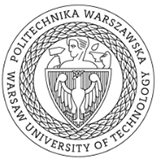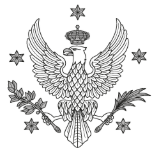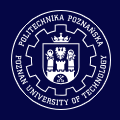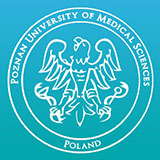Detailed introduction of Bialystok Technical University:
Introduction
Bialystok Technical University is the largest industrial university in northeastern Poland. Its predecessor was a private engineering night school established on December 1, 1949, and was finally upgraded to a university in 1974.
Overview
Number of students: 7,104 students as of November 16, 2021.
Number of faculty and staff: More than 620 academic educators.
History and establishment time
On November 24, 1949, the Polish Ministry of Education approved the Polish Federation of Engineering Associations to establish a private engineering night school in Bialystok.
On December 1, 1949, the evening school began to operate, and Karol Bialkovsky was appointed as the first president.
In 1950, the Faculty of Mechanical Engineering, Electrical Engineering and Civil Engineering began teaching activities.
In 1964, the Engineering Evening School was renamed the Faculty of Engineering.
On September 19, 1974, the Faculty of Engineering obtained academic status and officially became the Bialystok University of Technology.
School Strength
Faculty: The school has more than 620 academic educators, most of whom are experts and practitioners in their respective fields, who can provide students with high-quality teaching and guidance.
Scientific Research Achievements: From 2004 to 2021, the school implemented more than 130 projects with a total value of more than 493 million zlotys. The university also actively promotes the commercialization of scientific research results. For example, the Institute of Innovative Technologies of Bialystok University of Technology was established in 2010, which is committed to transforming scientific research results into practical applications.
International Cooperation: The university cooperates with many academic centers around the world and has signed more than 500 bilateral agreements on scientific and educational cooperation with foreign partners. For example, it co-founded the International Engineering College with Tianjin Chengjian University in China and Krakow University of Technology in Poland; it also carried out 20 dual degree programs with universities in China, Belarus, Denmark, France, Spain and other countries.
Institutional Nature
Public University.
Educational Philosophy
Committed to providing high-quality education for students and young scientists, conducting scientific research at the highest international level, and commercializing research results. Focus on cooperation with the economic environment and implement innovative technological solutions to meet social needs.
Key laboratories and disciplines
Key laboratories: The school has a number of advanced scientific research laboratories, such as the Research and Education Center of the School of Electrical Engineering, the Innovative Research and Education Center of Alternative Energy, etc., which provide strong support for scientific research.
Key disciplines: The school has the right to confer doctoral degrees in 8 scientific disciplines, including architecture and spatial planning, automation and electrical and electronic engineering, biomedical engineering, civil engineering and transportation, mechanical engineering, information and telecommunications technology, environmental engineering and management and quality research. Among them, automation and electrical and electronic engineering, civil engineering and transportation, mechanical engineering, information and telecommunications technology, environmental engineering and other 5 disciplines also have the right to confer doctoral habilitated degrees.
Faculty
The Bialystok University of Technology has a total of 6 faculties, namely:
Faculty of Civil Engineering and Environmental Sciences: Provides education and research in civil engineering, environmental engineering and other majors.
Faculty of Electrical Engineering: Focuses on teaching and scientific research in related fields such as electrical engineering and electronic engineering.
Faculty of Computer Science: Covers majors such as computer science and technology, information technology, etc.
School of Mechanical Engineering: has professional directions such as mechanical engineering and mechatronics.
School of Architecture: cultivates professional talents in architectural design, urban planning, etc.
School of Engineering Management: provides professional courses such as engineering management and business administration.
Ranking
2021 QS World University Ranking: 1001-1200.
Global University Network (4ICU) National University Ranking: 35th.
Cost
Tuition: Language tuition is 2200-3500 US dollars/year, university professional course tuition, English teaching is 3500-8000 US dollars/year, other teaching methods are 1000-4000 US dollars/year.
Living expenses: It is estimated to be around 270 euros per month, including accommodation, transportation, food, etc., which is about RMB 2,000.
Campus
Location and environment: The campus is located near the center of Bialystok, with convenient transportation, which makes it easy for students to access various resources. The campus is surrounded by beautiful environment and is close to the forest, providing students with a good learning and living environment.
Campus facilities: The school continues to develop its scientific and teaching infrastructure. In recent years, it has added facilities such as the Modern Education Center, the Research and Education Center of the School of Electrical Engineering, the Innovation Research and Education Center of Alternative Energy, and the Energy-saving and Environmentally Friendly Building Research Center. In addition, the campus also has an academic sports center, student dormitories, etc. to meet students' learning, living and entertainment needs.
-

Warsaw University of Technology
-

Poznan University of Life Sciences
-

Wroclaw Medical University
-

Nicolaus Copernicus University
-

University of Warsaw
-

AGH University of Science and Technology
-

Silesian University of Technology
-

Poznan University of Technology
-

Jagiellonian University
-

Poznan University of Medical Sciences
-

Mesoamerican University
-

Istmo University
-

Mariano Galvez University of Guatemala
-

Regional University of Guatemala
-

Galileo University
-

Francisco Marroquín University
-

Rafael Landívar University
-

University of the Valley of Guatemala
-

University of San Carlos of Guatemala
-

Technological Institute of Tlaxcala Plateau
-

Golfo University
-

Technological University of South Sonora
-

Technological University of Huejotzingo
-

Tizimín Institute of Technology
-

Chilpancingo Institute of Technology

